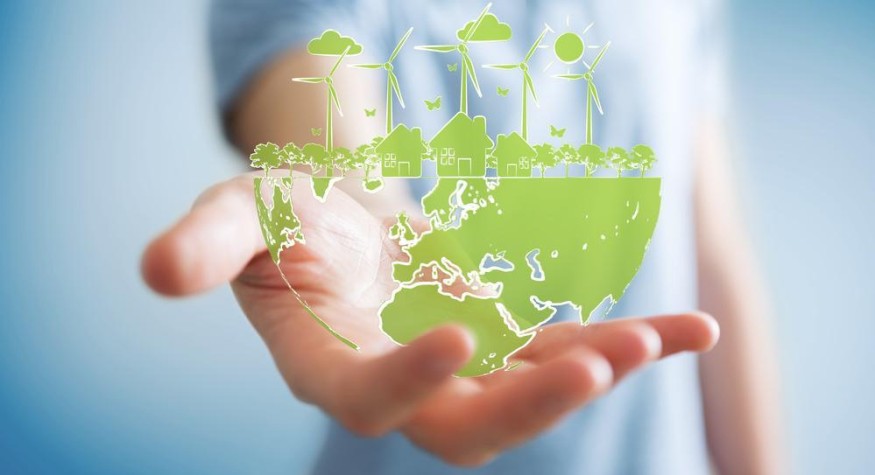
Our world is experiencing an accelerated transition towards renewable energy sources. This is caused by increasing environmental concerns over fossil fuel-based energy. The drive to eliminate heavy reliance on environmentally damaging fossil fuels has garnered a global agreement.
This readjusting phase of energy production demands cutting-edge technical solutions to enable a reliable, strong, and cost-effective green energy supply, to maintain economic growth and meet domestic needs.
The world's most brilliant scientific and industrial minds are taking up this challenge, with potentially rewarding benefits for successful innovators.
Predictions for the Global Green Energy Market indicate that it could reach a staggering $1,977.6 billion by 2030, essentially doubling the renewable energy market in just ten years. Given the central role energy plays in all economic activities and human life, this presents enormous opportunities.
Transitioning to renewable energy
Sources such as wind, tidal, geothermal, solar, bioenergy, hydropower, and ocean power - requires substantial investment in new infrastructures. At the moment, the cost of renewable energy is high, which might deter consumer adoption.
A significant challenge of the global renewable energy chain is energy storage. To put it in perspective, while the global economy could survive for approximately 45 days on stored crude oil reserves, electricity reserves if stored, would only last a measly 33 minutes. Thus, for a successful shift towards sustainable energy, we need the ability to safely store equivalent strategic reserves of electricity.
At the heart of the renewable energy revolution is the innovation in energy storage. Companies like ICL Group, providing groundbreaking energy storage solutions, hold a unique position within the renewable energy market.
ICL-Leading the Charge Towards a Renewable Energy Future
ICL's Energy Storage Solutions are pushing the boundaries of energy storage capacity. Their groundbreaking bromine battery technology is redefining renewable energy's potential. ICL has access to one of the world's largest bromine reserves, with their established operations in the mineral-rich Dead Sea region of the Israeli Negev Desert.
Bromine (Br), a chemical element known for its rapid kinetics, is perfectly suited for battery production and energy storage solutions.
Bromine batteries, safe for domestic use, require no specific maintenance or fire safety measures. The inclusion of certain materials, termed 'Complexing Agents', in the electrolyte, helps stabilize bromine, removing the risk of spontaneous ignition and possibly revolutionizing renewable energy production's efficiency and scalability.
The drive for ICL stems from their inherent enthusiasm for innovation and novel technologies, embedded in the company's DNA since the 1920s. They are preparing solutions for new markets and processes according to future energy storage needs, ensuring that ICL stays at the forefront of the energy field for many more years. ICL ensures it is ready to seize future opportunities at an organizational and structural level by investing in its own capabilities and workforce.
The demand for energy storage is substantial, with intense competition among EV manufacturers, each aiming to launch the ultimate electric vehicle with a safe, highly efficient, and smart battery.
ICL Group's ESS unit, responsible for exploring all potential battery material-related opportunities across ICL's businesses, investigates numerous global projects and enterprises. They strive to meet the end market and customers' needs by leveraging these synergies, knowledge, and skills. The ESS unit plays a crucial role in ICL Group's growth strategy.
The primary aim of this unit is to continually develop battery materials to create more efficient and sustainable energy storage solutions. They also aim to best serve their customers in the energy storage market, monitor technologies for incremental improvements, and investigate more efficient and sustainable next-gen technologies.
ICL's impressive global presence, history of building international partnerships, specialized knowledge, physical assets, and considerable financial resources all contribute to their commanding position in the ESS market. In response to the growing demand for energy storage due to the increased use of Li-Ion batteries, ICL is investing in lithium-iron phosphate production, backed by a $197 million federal grant, making them a significant US manufacturer for this burgeoning market.
Their successful entry into the Lithium Iron Phosphate market in China has prompted plans for expansion in other markets such as the US and Europe. The company is committed to developing inventive energy storage solutions to support future economic growth, and they are passionately dedicated to achieving the United Nations' 17 Strategic Development Goals, specifically the 7th UN's SDG, relating to "Ensure access to affordable, reliable, sustainable, and modern energy for all".
ICL Group's innovative renewable energy storage solutions play a substantial role in achieving this goal. They are excited about the potential their new technologies offer and are determined to convert these potentials into profitable realities through their dedicated ESS unit.












